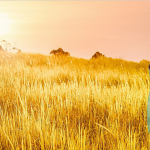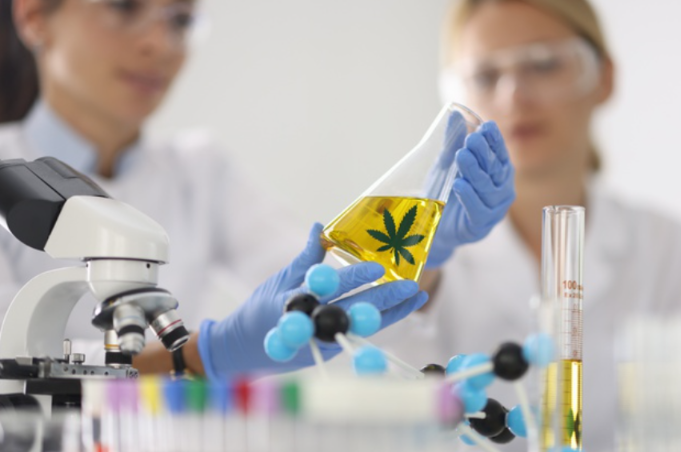Getting enough protein is essential to a healthy and balanced diet, but also plays a key role in how our bodies function. Our bodies need protein to make all the muscle, connective tissue and blood in our bodies, regulate our hormones and provide us with amino acids, which are otherwise not synthesized by our bodies.
For men, the recommended daily allowance for protein is around 56 grams per day and for women it’s approximately 46 grams but may vary depending on an individual’s body size, kidney function status and exercise level. More often than not, if you consume meat and other animal products, you meet your daily value without a problem. But what if you’re vegetarian or vegan? As more people switch to plant-based diets for health or other reasons, there has been growing concern about where to get protein and how much is enough.
If you’re vegetarian or thinking of making the switch, getting protein is not only easy with a little guidance, but is also a highly effective way to also fill up on essential phytonutrients, fiber, vitamins and minerals. Read about the top ten plant-based proteins below and incorporate them into your diet for protein at any time!
1. Lentils: These tiny legumes pack a mighty punch, weighing in at about 18 grams of protein per 1 cup serving. Lentils are easy to cook and incorporate into stews, soups, and even on top of salads. Lentils are also versatile in their flavoring, and absorb the flavors of the spices that are cooked with them. Try them cooked with garlic, onions and curry powder for a spicy side dish, or in combination with hearty vegetables in minestrone soup.
2. Nuts: Nuts are a great source of plant-based protein and can be enjoyed virtually anywhere—nuts are great on-the-go snacks that are both filling and nutritious. Cashews and almonds are top contenders, and offer a wide variety of other beneficial nutrients. Cashews, for example, contain approximately 5 grams of protein along with one-third of your daily copper intake and about 23% of your manganese and magnesium intake.
3. Chia Seeds: This superfood doesn’t contain as high of protein content as some of the other foods listed here, but these crunchy seeds are mighty nonetheless! A one ounce serving contains four grams of protein, a whopping approximate 11 grams of fiber and an estimated 18% of your recommended daily calcium intake. (That’s three times the amount of a glass of milk!) Try them mixed in with a smoothie, in cereal and yogurt or even by themselves.
4. Hemp Seeds: Hemp is one of the few plant proteins that supply all the essential amino acids your body needs to build and maintain muscle. Three tablespoons of hemp seeds offer over 10 grams of protein and can be added to salads, breads, smoothies and even as an egg replacement in cookies and cakes.
5. Quinoa: Often referred to as the “perfect protein,” quinoa not only delivers eight grams of protein per cup, but also supplies all nine essential amino acids that the body cannot otherwise produce on its own. Quinoa is another versatile grain that can be enjoyed as a substitute for bread or rice, tossed into salads, or even served hot with cinnamon and sugar as a breakfast cereal.
6. Non-dairy “milk”: You don’t have to be lactose intolerant to love non-dairy beverages like soy, almond and hemp milk: These beverages are tasty alternatives to milk that clock in at a fraction of the calories. One cup of unsweetened soymilk, for example, has seven grams of protein and only about 80 calories. Be sure to buy unsweetened versions of these drinks to save on calories and added sugar.
7. Edamame: Served alongside sushi dinner, edamame is not only fun to pronounce but is great for you, too! Easy to cook (boil them in salt water for 3 minutes and you’re done) and rich in protein, half a cup of shelled beans equals about 11 grams of protein, estimated 9 grams of fiber and rounds in at about 2-3 grams of fat.
8. Spirulina: This superfood is actually a type of algae that comes from fresh warm waters. You can find it in your local health food store as a dark green powder that can be added to smoothies and shakes. Spirulina is a great source of Vitamin B2, iron and copper, and also contains an estimation of about 2 grams of protein per teaspoon.
9. Pumpkin Seeds: Pumpkin seeds are a tasty protein-filled snack that are also full of iron, fiber and zinc. A quarter cup of seeds has approximately 16 percent of your daily iron intake, about 5 grams of fiber, over 20 percent of your daily zinc intake and approximately 9 grams of protein. These seeds should be enjoyed raw and with low or no salt.
10. Vegetables: Vegetables are an essential foundation for any diet, especially plant-based ones. Vegetables actually contain a considerable amount of protein, in addition to the full range of vitamins and nutrients needed to keep you healthy. Spinach, broccoli, kale and sweet potato all contain about 5 grams of protein per cup, and raw peas boast about 9 grams of protein per cup. Eat your veggies raw or cooked, and eat a lot of them: You will be surprised how satisfying they are.


















